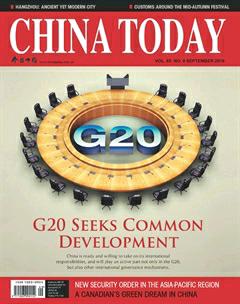Voices
“First, China will be committed to peaceful development. This is because at home, China is still a developing country and will remain so for a long time. To grow the economy and improve peoples lives is still our top priority... Second, China is committed to an independent foreign policy. We do not seek hegemony, build alliances, or export ideology. We determine our position on the merits of an issue itself and will not yield to external pressure... Third, China advocates a new security concept. During the conference celebrating the 70th anniversary of the founding of the Communist Party of China (CPC) on July 1 this year, President Xi Jinping said that China does not covet other countriesrights and interests or envy other countries development, but China will never give up its lawful rights and interests.”
An extract from Liu Jinsong, Charg d Affaires of the Chinese embassy in Indias speech “Chinas Security and Diplomatic Doctrine in a Globalized Era” at the National Defense College of India on July 21, 2016.
“Delayed retirement would not have an adverse effect on young peoples employment, as there is an increasingly aging Chinese population. Shrinkage of the working-age population means there will be more, not fewer, job opportunities awaiting the young ... Under such circumstances, delayed retirement means that people will have more time working, so that they can create more wealth to make a prosperous society. And individuals can get a higher pension after retirement. The delayed retirement policies will benefit both sides.”
Li Zhong, spokesman of the Ministry of Human Resources and Social Security, made these remarks at a recent news conference on the plan to revise the current retirement age and delay retirement. He disclosed that Chinas working-age population has been in decline since peaking at 925 million in 2011, and that it is expected to drop to 700 million by 2050.

